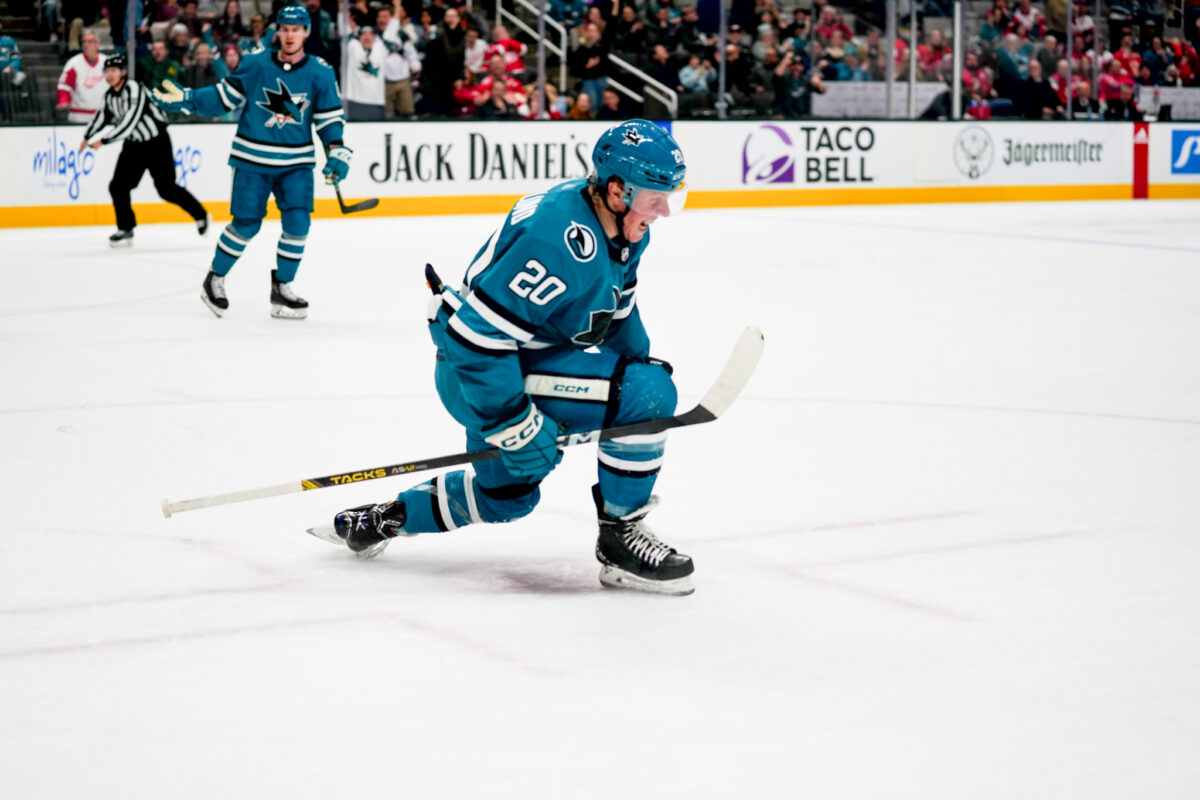The San Jose Sharks have a lot of business to attend to in the fairly near future. One important thing that general manager Mike Grier will almost certainly want to do as soon as possible is lock up Fabian Zetterlund before his value skyrockets even further. He had a very strong 2023-24 season for the Sharks and at 24 years of age, he’s likely only going to improve from here.
Zetterlund’s Strong First Full Season in Teal
Although Zetterlund is officially entering his fourth season in the NHL, the 2023-24 season was his first full season with the Sharks. In 2021-22, he appeared in 14 games for the New Jersey Devils. The following season he played 45 games for the Devils before being traded to the Sharks ahead of the trade deadline as a part of the Timo Meier deal.

Zetterlund played fairly well in his time with New Jersey, putting up a total of 28 points in 59 games. Right after the move to San Jose, he struggled putting up only three assists in 22 games to close out the 2022-23 season. While it was clear from these performances that he had potential at the NHL level, it was hard to tell exactly how effective he was going to be in the long run.
His first full season with the Sharks was a much different story though. In 82 games, he scored 24 goals and assisted on 20 others, totaling 44 points in 82 games. As the season went on, it was easy to see his confidence skyrocket. He ended the season as a key part of the “Lund Line” alongside William Eklund and Mikael Granlund, who should continue to have success in the 2024-25 season as long as new head coach Ryan Warsofsky keeps them together.
Long-Term Savings
While a contract extension could go multiple ways, this would likely be a situation where Grier would benefit from an early long-term contract. When players like Macklin Celebrini and Will Smith are due for new contracts, cap space may become an issue for the Sharks. If they can lock up other core players like Zetterlund at a lower cost early on, it would give them more flexibility when that time comes. Of course, that also brings increased risk to an organization that has been burned by long-term contracts in the past.
Given the uncertain nature of a player like Zetterlund, the range of “long-term” deal I’m referring to in this instance would be somewhere around four to six years rather than a maximum eight-year contract. Excessively risky contracts with high monetary values are ultimately what caused the Sharks to fall into this elongated rebuild after many years competing for the Stanley Cup, and although those were mainly with aging players, it’s best not to immediately repeat the exact same mistakes.
Zetterlund’s Difficult Value to Gauge
Zetterlund will be a restricted free agent when his contract expires following the 2024-25 season, however, based on one strong performance it’s difficult to gauge his value properly which may make the player hesitant to sign a long-term deal when he has little leverage besides arbitration rights. From a financial standpoint, it would make sense for his camp to hold off until he’s eligible for unrestricted free agency and sign a deal then. With that being said, things can quickly change in the NHL, and in a contact sport it’s always beneficial to sign an extension at the peak of value, and right now could be exactly that for Zetterlund. He was never a highly touted prospect, he was a third-round pick in the 2017 NHL Draft and truly took major steps forward in the Devils organization.
The question for management is likely whether or not Zetterlund has reached his ceiling or if he’ll continue to develop. They’ll certainly hope that he continues to improve and grow into a huge part of their next core of players, however, even if he stays at the production level we’re seeing from him now, he’ll be a fantastic role player. If he develops into a 60-point player, that would be amazing for the Sharks, however, if he continues to be around the 40-point area he’s still an effective player in the NHL. In terms of finances though, there’s a massive difference between the two roles. Signing a deal now, you’re likely going to pay a bit for potential but it’ll be much less than it would be after he’s already put up 60 or more points in a season.
Related: Revisiting Sharks’ Timo Meier Trade to the Devils
Signing Zetterlund to a contract extension now prevents his value from skyrocketing before he gets his next deal from the Sharks. As always there’s some risk when signing a player with limited NHL experience to a long-term contract, but in this case, it could become one of the league’s biggest steals if done correctly. An eight-year contract for example might be a little excessive, but if Grier can lock him up with a four or five-year extension for a relatively low average annual value, it would certainly help them out in the long run when other key players start to come off of their entry-level contracts.
